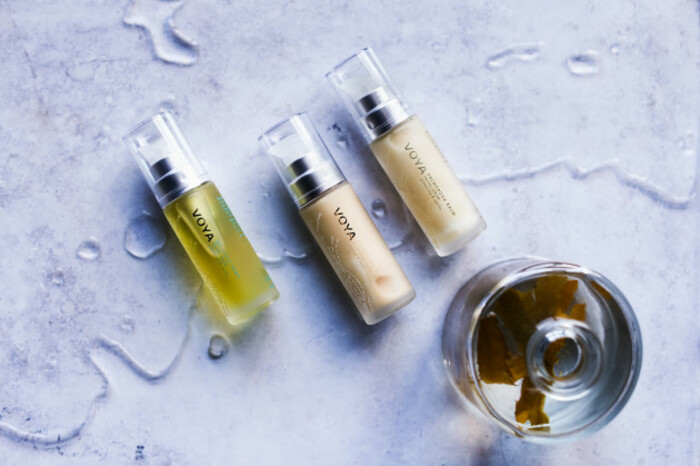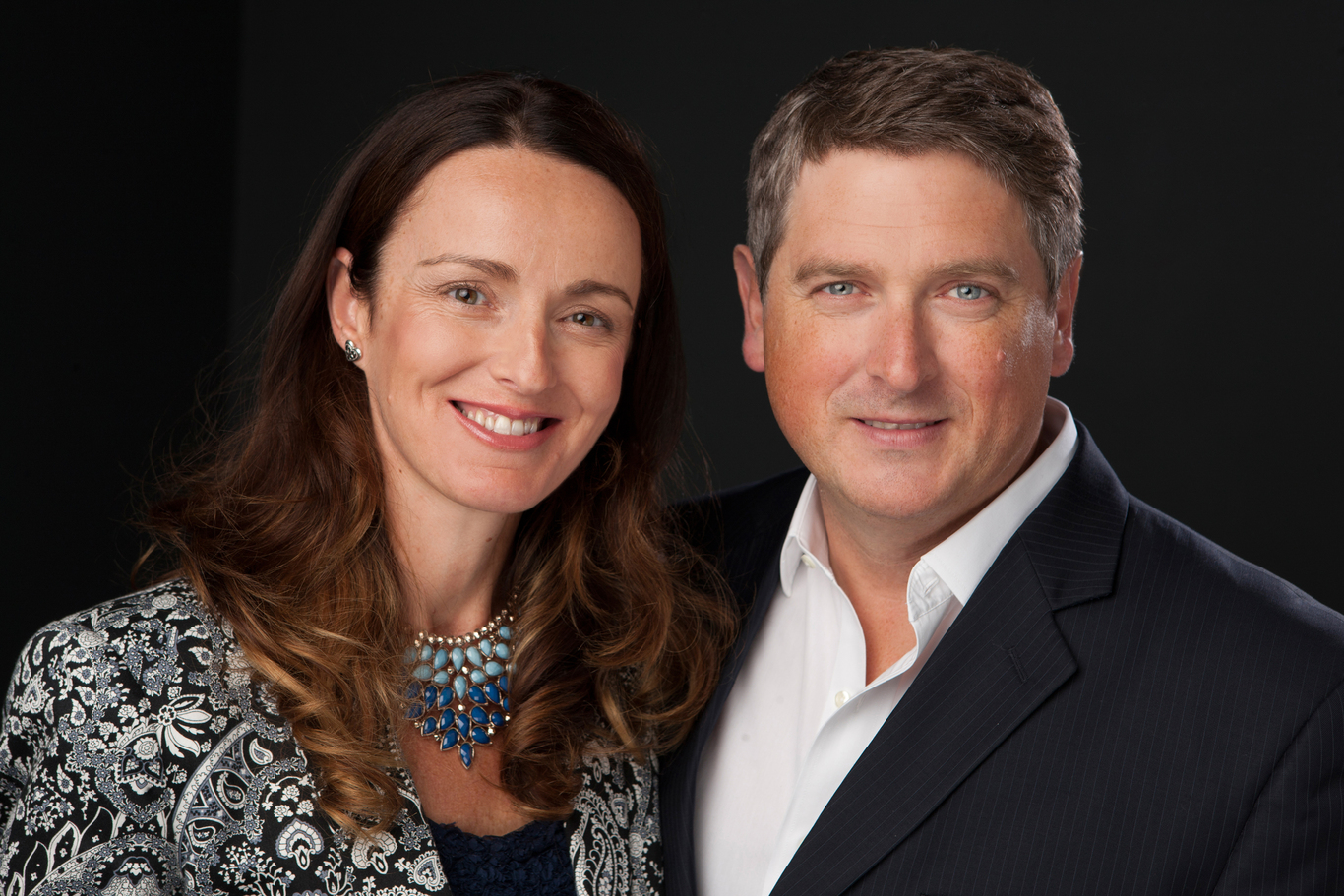'I remember when the last crash came, people said 'don't waste a good recession'''
Tools of the Trade: Co-founder of VOYA skincare, Mark Walton, talks recession and fly-fishing.
EVERY WEEK, FORA gets inside the heads of some of Ireland’s top entrepreneurs to gain insights into what got them to the top of their trade. This week we speak to Mark Walton, co-founder of Irish skincare company VOYA.
Mark Walton learned a lot from his late father about paying attention to the natural world.
But it was only after a corporate stint in investment banking that Walton co-founded seaweed-based cosmetics company VOYA with his wife Kira, a graphic designer by profession.
The company launched in 2007 in Strandhill in Sligo, where its seaweed baths are also based. The company now employs about 50 people and its products and spas are found in North America, Europe and parts of Asia and the Middle East.
The company’s founders are 2012 alumni of the EY Entrepreneur of the Year awards.
In our weekly Tools of the Trade series, we spoke to Walton about bouncing back in the recession and why the environment is so central to the company.
Here’s what he had to say:
What drives you?
If a business wants to grow, it wants to record profits and to take over the world. But we’re obviously an environmental brand and that means something to me.
I’d be wary that if somebody else took over running the business their only interest would be in capitalising on revenue.
While these things are important for the survival business, it’s not the only thing for us.
So it’s two things. One is the welfare of my colleagues. I want to make sure they have a good quality life. And to maintain the promise to our consumers that we actually we do care about the environment. Environmental matters do weigh on me quite a bit.
I would be concerned if somebody else is doing it, that they wouldn’t have the same sort of drive for those issues.
Are you a specialist or a generalist?
I’m a general specialist. When Kira and I started this business we knew nothing and we’ve learned a lot of things on the way. We have a degree of specialty in so many different areas.
I think we’d find it very difficult to find somebody who knows all the things that we have acquired over the years, be it product formulation technology to managing business, to logistics, to international regulations on product registration.
I think I’ve also acquired over the years enough knowledge to know that I don’t know enough. I brought in people to the business who have helped me when I need them.
Who is the person who has most influenced the way you think?
My wife Kira who founded the business with me. She’s all about detail and quality. In our business we have a healthy tension between departments, so that people should be fighting with each other a little bit in relation to what they want.
Whenever there might be the temptation to take the easier route she’ll always pull us back. I’ve learned a lot from that.
What makes you feel under pressure and how do you deal with it?
Time. We’re all time-poor. I never feel like I have enough time especially with a new toddler in our house.
The other thing, which I love most about our business but it probably causes the most stress, is people.
Managing people’s expectations and desires in their careers can always be difficult and that causes me personal stress more than anything else.
You need to take yourself completely out of zone. I surf and I fly fish.
What quality has helped you stand out?
Patience. I don’t react to situations and I don’t let situations dictate to me what we should do.
I remember when the last recession came up people said, “Don’t waste a good recession.”
I think that kind of stuck in my mind. Whenever there’s a negative situation or something which is causing pressure, there may be an opportunity that you’re not necessarily seeing.
What is the most important skill you have learned?
I’ve always tried to understand somebody else’s perspective. Whether you’re dealing with a vendor, supplier or customer and you’re in a very difficult situation, I’ve always tried to understand what is motivating that person.
It probably helps you to come up with a solution for solving that problem.
 VOYA facial serums.
VOYA facial serums.
What past business decision would you change?
We were always very modest, very cautious. In hindsight, when we look at the way the brand has grown over the years, we probably should have looked at scaling up more quickly, sooner.
We just moved into our latest factory about a year and a half ago. But that’s been our fourth move in probably less than 10 years. We probably could have avoided two moves in that process.
The other one is, we probably should have focused more on the US market. We’ve seen fantastic growth there. I wouldn’t say we we missed an opportunity because we’re still growing rapidly there but we probably could have grown a lot quicker if we had.
What ambitions do you still have?
I want to continue to grow the brand. I think particularly we’re going to grow in the Irish market.
We’ve always been at the forefront of sustainability when it comes to our products. I still have ambition to be a highly functional, effective cosmetic range but also have the smallest potential footprint for the brand.
Those things can be competing interests. So that still is the goal of the brand – I still want to be seen as a benchmark of both quality and formulation technology but also in credibility and sustainability.
Do you think ambition or talent matters more for success?
It depends on the position.
We’re all about hiring talent. It’s not unusual for us to interview for one job and hire two people just because we’ll meet somebody so good we just don’t want to lose them.
But ultimately there needs to be somebody in there who’s ambitious; somebody in the engine room who needs to make that ‘fuck it, let’s do it’ call.
In my position ambition is important. But my colleagues, they’re all about the talent because I’ve no talent.
What was a big turning point in your life?
We had a baby about a year and a half ago.
It sounds soppy but it applies to business because it makes you focus on what’s really important and what you really need to be doing.
For too long my wife and I were doing everything. And we really didn’t need to be involved in everything.
While it’s great having something like that thrown into your life, it makes you reevaluate what’s a priority. It forces you to delegate.
Who have you learned the most from in your career/life?
My father, who passed away two or three years ago. He brought me into understanding the organic environment. It wasn’t because it was cool or trendy.
It was something he grew up with. It was an understanding for looking at everything that we use and consume and how we can reuse things and how there’s probably a better way of doing things.
It bugged me in my own business. We are consumer environment, consumer culture, we consume things, but it bugs me when I look at things and I think there must be a better way of doing this. There must be a better way of using less materials and packaging.
What book would you recommend the most?
I’ve been watching what’s happening with Brexit and the House of Commons, so maybe Lord of the Flies. It looks at human nature and how people react in crowds.
Get our Daily Briefing with the morning’s most important headlines for innovative Irish businesses.







